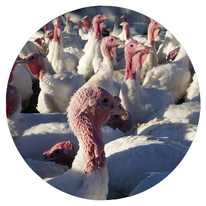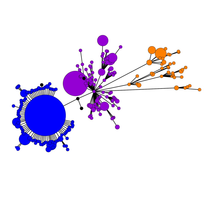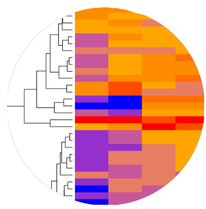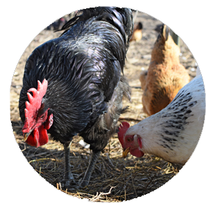Current Research
Johnson Lab research has the primary goal of protecting and sustaining our food supply. To that end, we strive to enhance poultry health through a better understanding of the microbiota of the bird, the biology of antimicrobial resistance, the efficacy of antimicrobial alternatives, and pathogen ecology. More specifically, we have funded research programs addressing the following:

Identify mitigation strategies for antimicrobial resistance in poultry. In this USDA-funded project, we are exploring three different mitigation strategies. First, we are using CRISPR/Cas technology to eliminate multidrug resistance-encoding bacterial plasmids from poultry production environments. Second, we are assessing the effects of vaccination on overall bacterial pathogen ecology in live production settings. Third, we are developing probiotic-based approaches by which to enhance feed conversion and weight gain in commercial turkey production.

Develop a genomic and phenotypic pipeline for identifying high-risk, emergent Salmonella in poultry production. In this USDA-funded project, we are utilizing a database of nearly 400,000 Salmonella genomes to build an atlas of Salmonella in US poultry production. This atlas is being used to prospectively and retrospectively identify new strains of Salmonella that have emerged in poultry production. These data are being coupled with rapid phenotypic screens to develop a real-time tool that can be used to predict when shifts in Salmonella ecology on farm present an enhanced risk to human health. The overall goal of this project is to allow poultry producers to utilize this tool to identify and respond to emergent Salmonella before they are able to cause human outbreaks.

Understand the ecology of avian pathogenic Escherichia coli (APEC) in commercial turkey production, and the impact of vaccination on APEC ecology. In this USDA-funded project, we are utilizing more than 12,000 real-life field samples to comprehensively characterize the ecology of APEC on farm in commercial turkey production as it relates to the respiratory tract, the gastrointestinal tract, the litter environment, and clinical disease. We are also determining the impact of vaccination over successive flocks in APEC ecology, using a commercially available E. coli vaccine.

Determine the role that commercial poultry and backyard poultry plays in the zoonotic transmission of avian pathogenic E. coli from birds to humans. In NIH-funded work with Dr. Jay Graham, we are studying the impact of housing backyard chickens in rural Ecuador on the carriage of avian pathogenic E. coli by children within that household. We are combining these efforts with existing projects in the US to determine the relative impacts of housing backyard chickens versus consuming commercial poultry on the transmission of avian E. coli from birds to humans. Further, we are developing enhanced tools by which to predict food source of an isolates from humans based upon its distinguishing host-adaptive markers from the animal source.